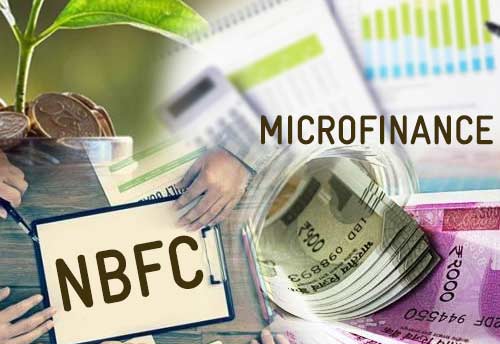COVID second wave brings MFI and small NBFC sector to its knees
Updated: Jul 12, 2021 06:48:23am

COVID second wave brings MFI and small NBFC sector to its knees
Mumbai, Jul 12 (KNN) The impact of the second Covid wave has again raised concerns over the recovery of the microfinance (MFI) and the small NBFC sector, which was already battling the elevated credit stress and declining AUM in FY21.
Accordingly, a study by Acuité Ratings shows that out of thirteen issuer downgrades by credit rating agencies during Q1FY22 in the financial sector, ten issuers are smaller MFI and NBFCs engaged in providing unsecured MSME loans, personal and vehicle loans.
A further analysis undertaken for the MFIs and smaller NBFCs rated by Acuité indicates that the collection efficiencies which were seen recovering above 90 per cent in Mar-21 have dropped to between 65-85 per cent levels during Q1FY22.
The sector has been staging a comeback with marked improvement in disbursals and collection efficiency levels since Q3 2021. However, with the second wave of Covid forcing many states to impose strict lockdowns, the sectoral recovery has been interrupted and led to a perceptible deterioration in credit quality.
“Besides the lower collections, the debt raising ability of these smaller players has been impacted with an estimated 50 per cent of players (having a loan portfolio of more than 500 crore) having received adequate funds,” the study added.
The government of India has also announced a few additional fiscal relief measures for the businesses and borrowers impacted severely by the second wave of the pandemic. The size of the ECLGS programme under sovereign guarantee which was launched in May-20 has been increased from Rs.3.0 Lakh crore to Rs 4.5 Lakh crore.
Acuité has noted that a substantial number of MSMEs in its rated portfolio has availed funding from ECLGS which is helping them to maintain an adequate liquidity position despite the challenging business environment. The other significant measure to provide up to 75 per cent credit guarantee for bank loans to the MFI sector up to an aggregate amount of Rs 7,500 crore is a timely step.
Earlier, RBI in Apr-21, had earmarked an additional Rs 16,000 crore funding limit for SIDBI for lending to MSMEs, directly or indirectly. In order to provide further relief to the businesses hit by Covid 2.0, the newly announced restructuring window has been extended for all entities with outstanding credit up to Rs 50 crore.
''Given the ongoing stress in the NBFCs’ portfolio, we expect a significant increase in the quantum of restructured loans in Q1/Q2 of FY22. In our opinion, all such measures will not only add up to support the continuity of credit flow to microfinance and MSME borrowers but also provide liquidity relief to the smaller lenders,'' it said.
“Even as two-wheeler as an asset class fared better during the first wave of lockdowns, the impact has been greater during the second cycle on account of the spread of the pandemic in rural areas and the stress on the borrowers’ cash flows due to loss of income as well as high medical expenses,” said Suman Chowdhury, Chief Analytical Officer, Acuite Ratings & Research.
“Given the intermittent nature of economic activities in the wake of Covid spread in Q1FY22, the borrower income streams, particularly of those serviced by smaller NBFCs or MFIs have been severely impacted, thereby exacerbating the asset quality stress for these lenders,” he added.
However, the report added that absence of moratorium has made the borrower stress more visible in this cycle and along with lack of adequate funding, the deterioration in liquidity and therefore credit quality for smaller NBFCs and MFIs was almost inevitable.











